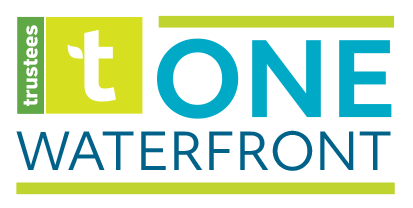The Community Preservation Act: Funding open space, community housing, and historic preservation
Of the 351 cities and towns in the Commonwealth of Massachusetts, 177 have adopted the Community Preservation Act (CPA)—that’s more than half. First signed into state law in 2000, CPA raises funds to preserve historic sites, create affordable housing, conserve open space, and develop outdoor recreational facilities.
The Trustees has long been a supporter of CPA, working to increase state match funding and helping with local adoption efforts. In 2016, The Trustees proudly supported its adoption in the City of Boston, where it has since funded over 90 projects, ranging from the creation of new parks, to the restoration of historic buildings, to the construction of affordable homes. Just last month, Mayor Martin J. Walsh and the Boston Community Preservation Committee recommended 40 new projects to receive the next round of CPA funding, representing a potential $24 million investment.
The benefits of this program could soon expand to further areas across the Commonwealth. On November 3, registered voters in nine more municipalities will decide whether to adopt this program within their own communities, on their local ballots.
CPA represents a unique partnership between the state and local communities, allowing cities and towns to “opt-in,” and create their own local Community Preservation Fund, powered by a local property tax surcharge of 3% or less. Once established, state law dedicates the use of local fund to three purposes: (1) open space and outdoor recreation, (2) community housing, and (3) historic preservation.
The local fund is met by an annual state match, from the Community Preservation Trust. State funds are derived from recording fees at the registries of deeds throughout the state.
To date, statewide, over $2.35 billion in community preservation funding has been raised through CPA on 12,000 projects, protecting local landmarks and historic buildings, creating affordable housing, and preserving over 30,000 acres of open space. In Boston, these funds recently helped with the purchase and installation of accessible playground equipment in Martin's Park, a waterfront playground adjacent to the Aquarium, and paid for maintenance and amenity upgrades in Reggie-Wong park, the largest open space in Chinatown.
CPA has also helped fund critical projects at many Trustees’ properties, including Turkey Hill in Cohasset, The Old Manse in Concord, and Naumkeag in Stockbridge.
On November 3, registered voters in Framingham, Franklin, Greenfield, Hopedale, Lancaster, Lee, Milton, Shrewsbury, and Whitman will decide whether to adopt a CPA local property tax surcharge ranging from 1% to 3%. Several of these communities will include exemptions from the surcharge, including for low income homeowners. If passed, each community would raise an annual sum of approximately:
Framingham: $1.53 million
Franklin: $1.26 million
Greenfield: $190,000
Hopedale: $110,000
Lancaster: $144,000
Lee: $135,000
Milton: $717,000
Shrewsbury: $635,000
Whitman: $187,000
These figures do not include the annual state match, which ranges from 20 – 30% every year. The costs to the average single-family homeowner would range from approximately $33/year in Lee to approximately $105/year in Franklin.
“The Trustees is an enthusiastic supporter of this local program, and we know many of our Members and friends join us in being concerned about land conservation and historic preservation,” says Linda Orel, Trustees Director of Policy. “CPA is an effective tool to support quality of life in communities across the Commonwealth, and we encourage you to vote YES and adopt the Community Preservation Act on your local ballot on November 3, 2020.”
For more information about CPA, including a list of projects it has funded in communities throughout the state, please visit www.communitypreservation.org
